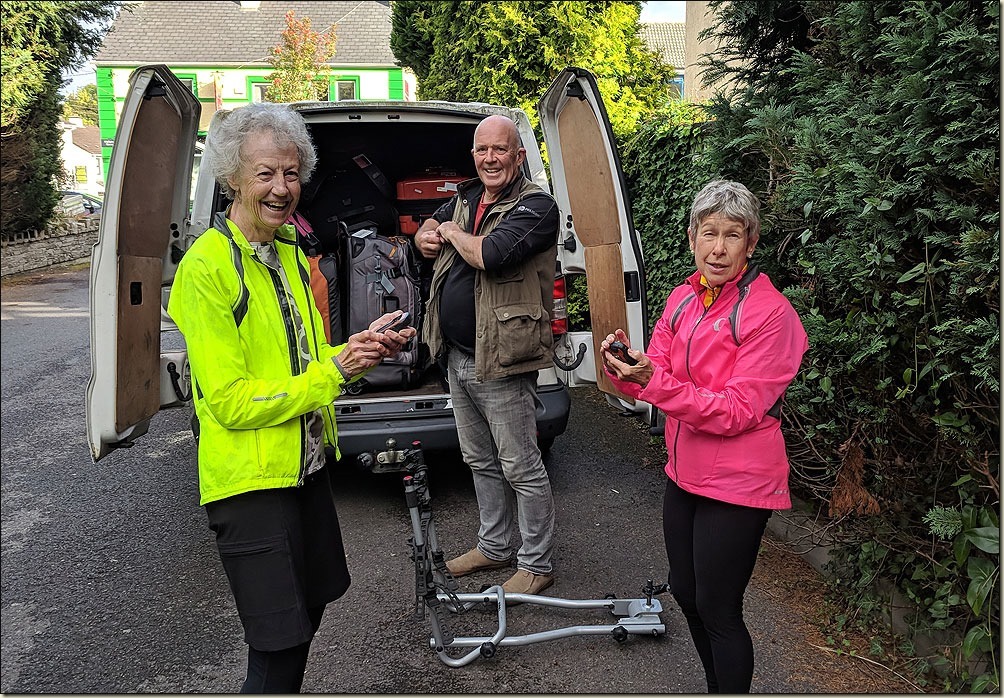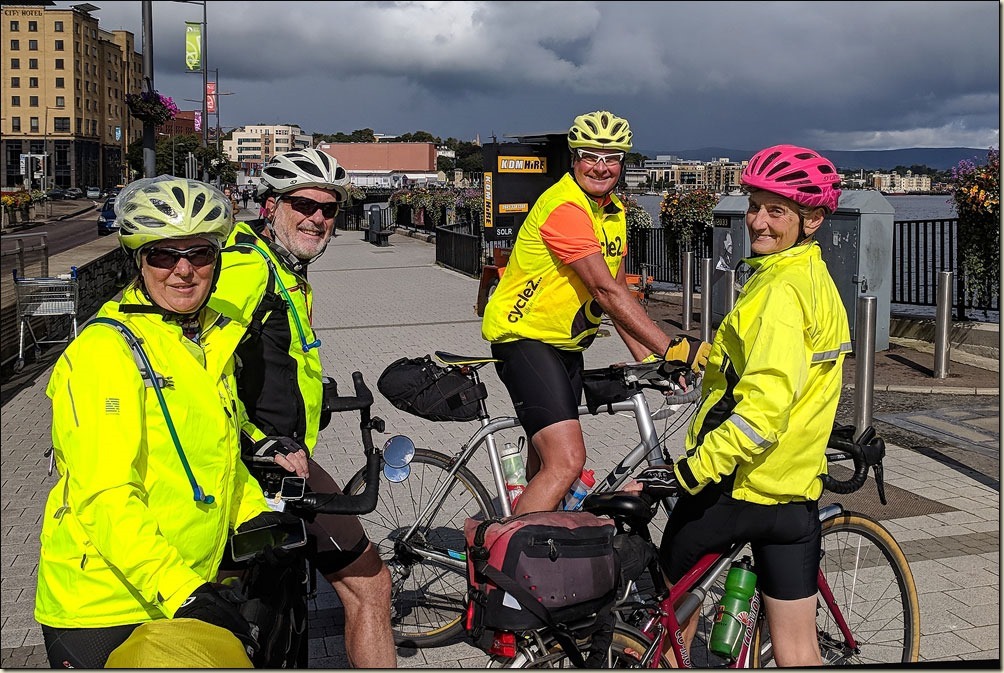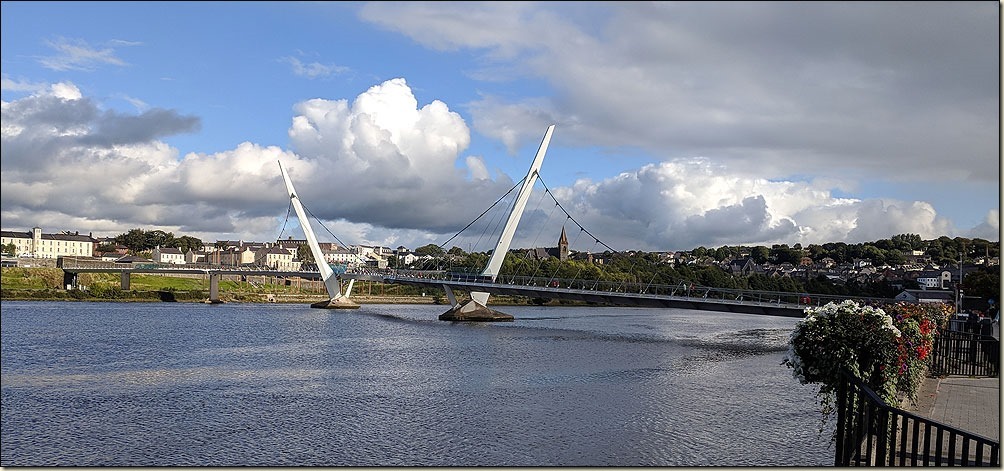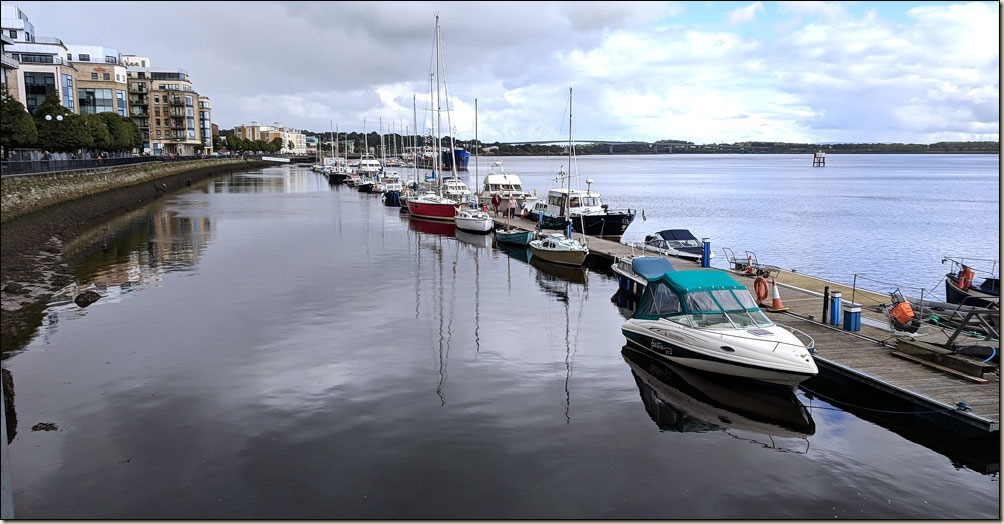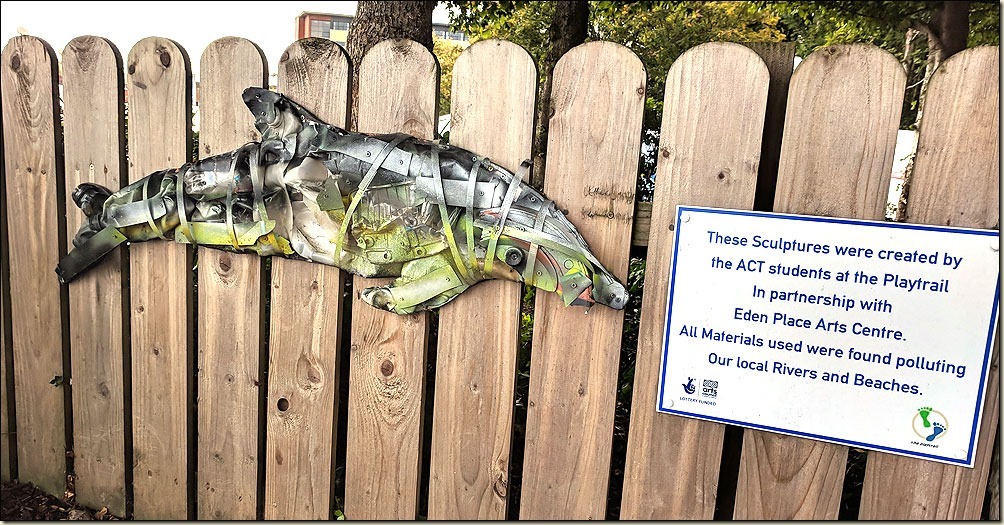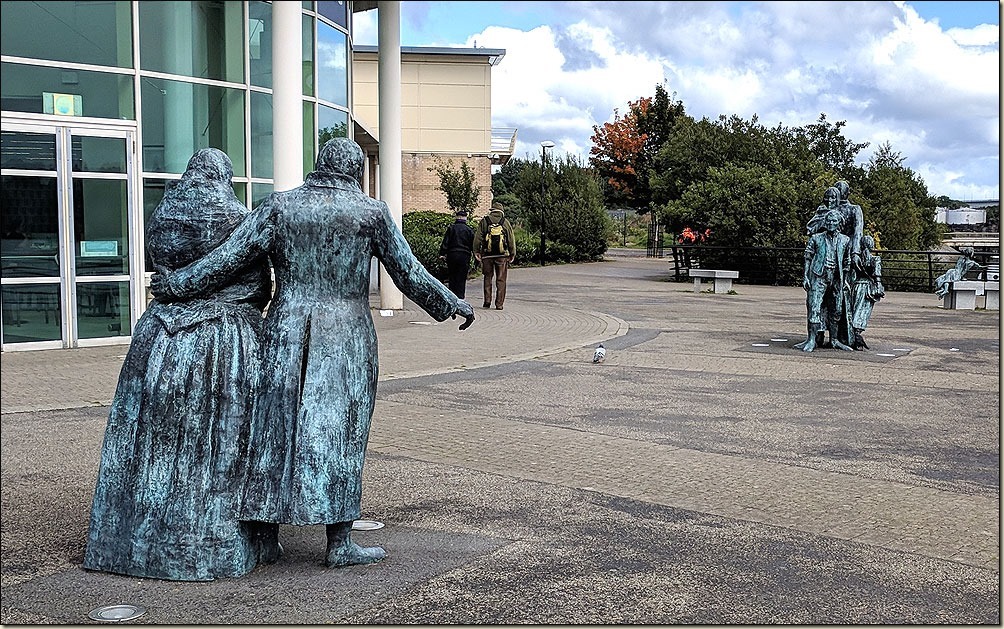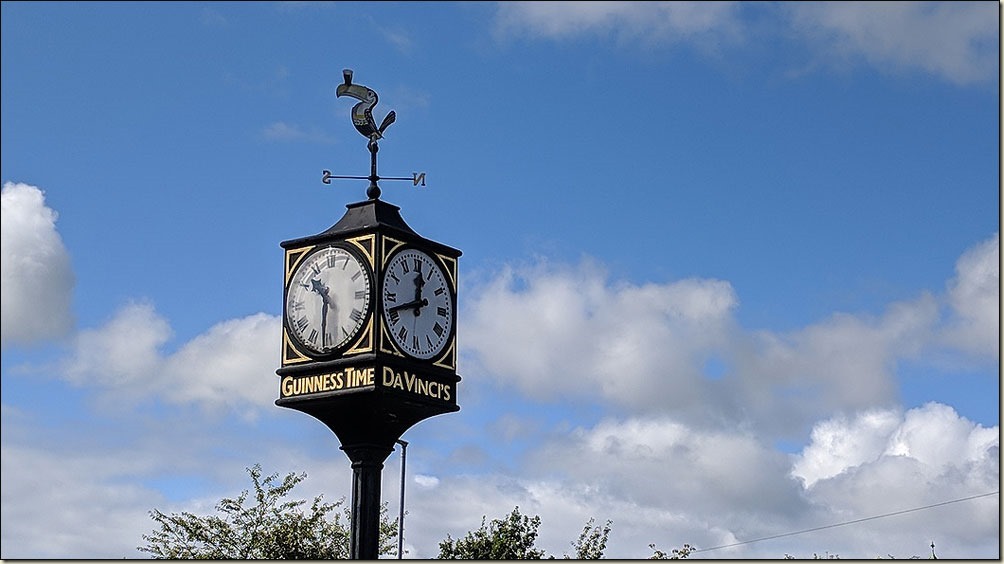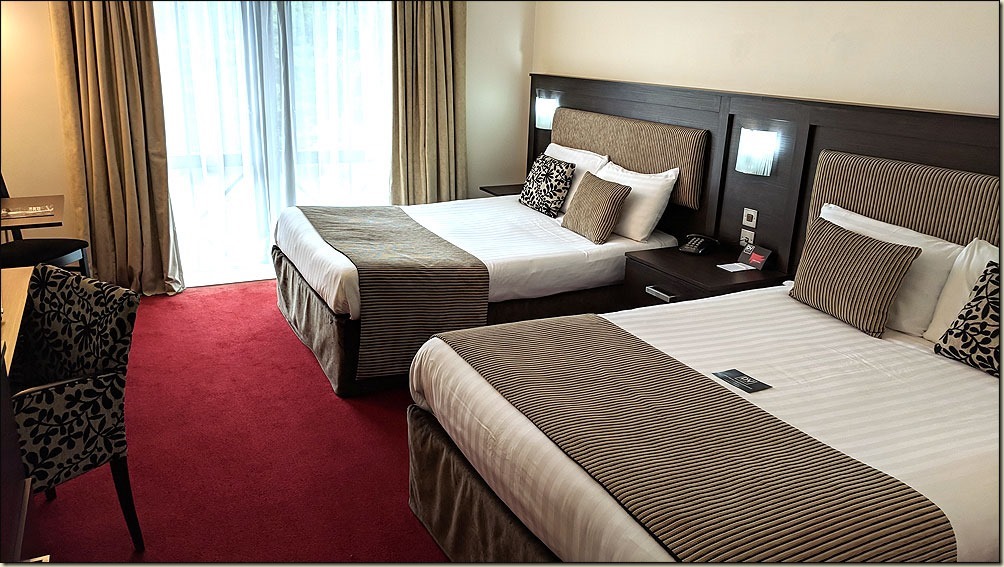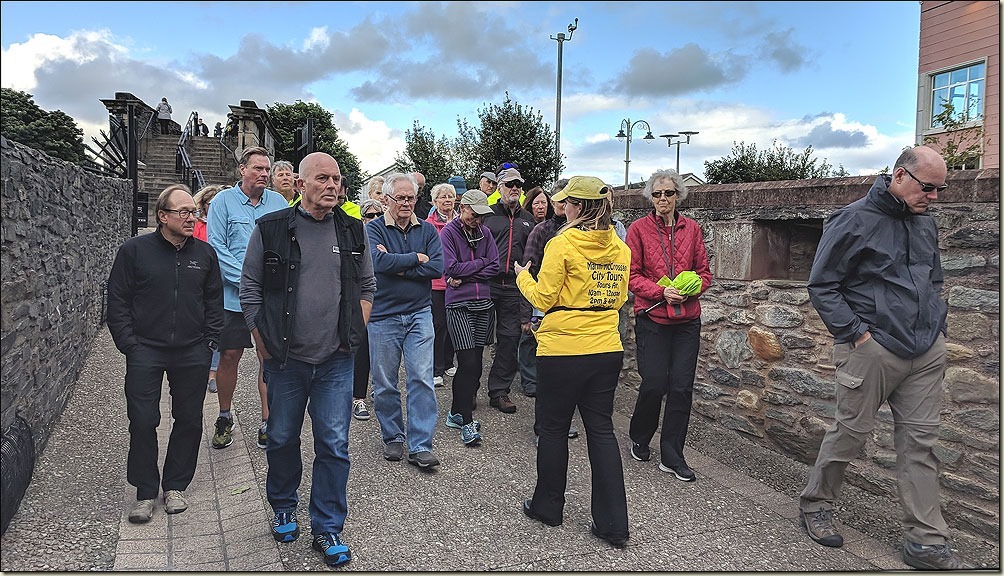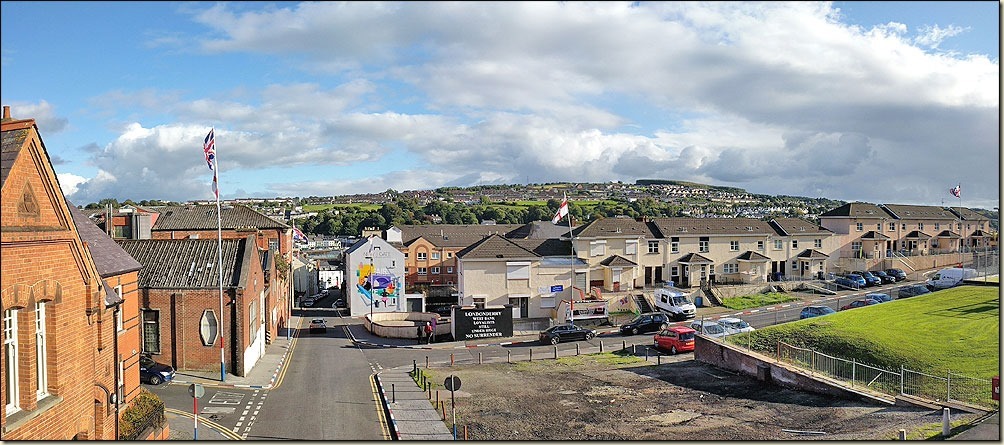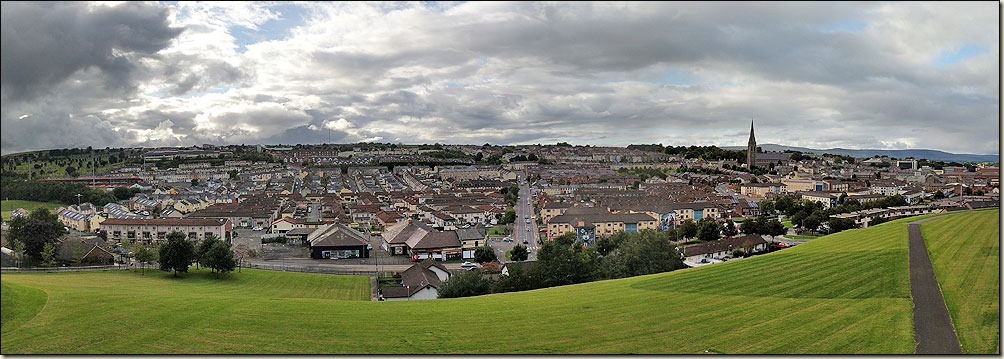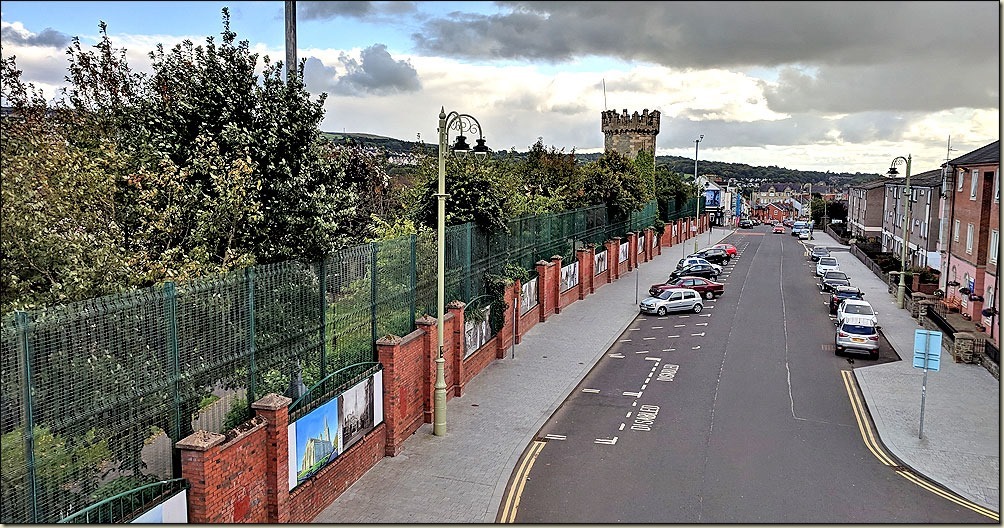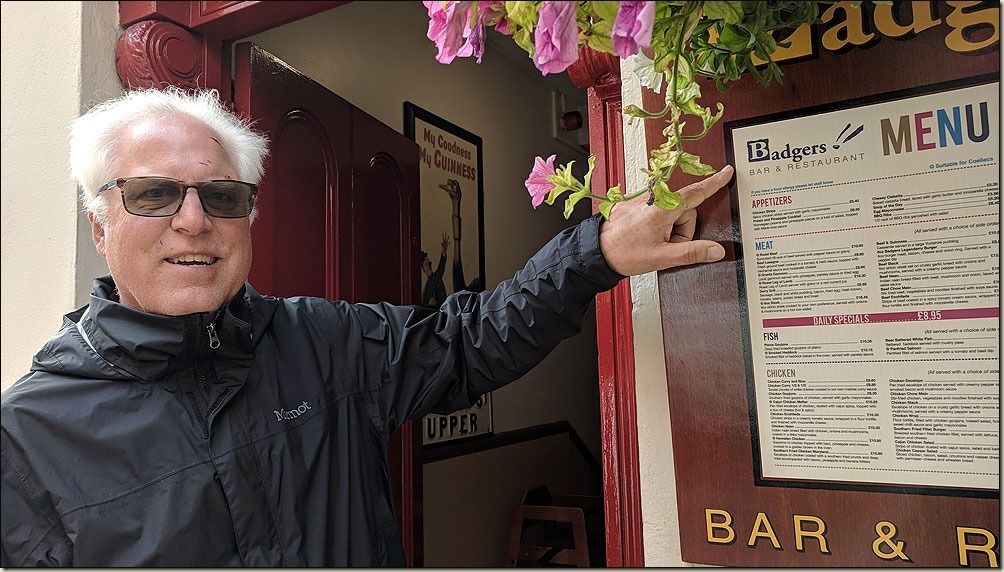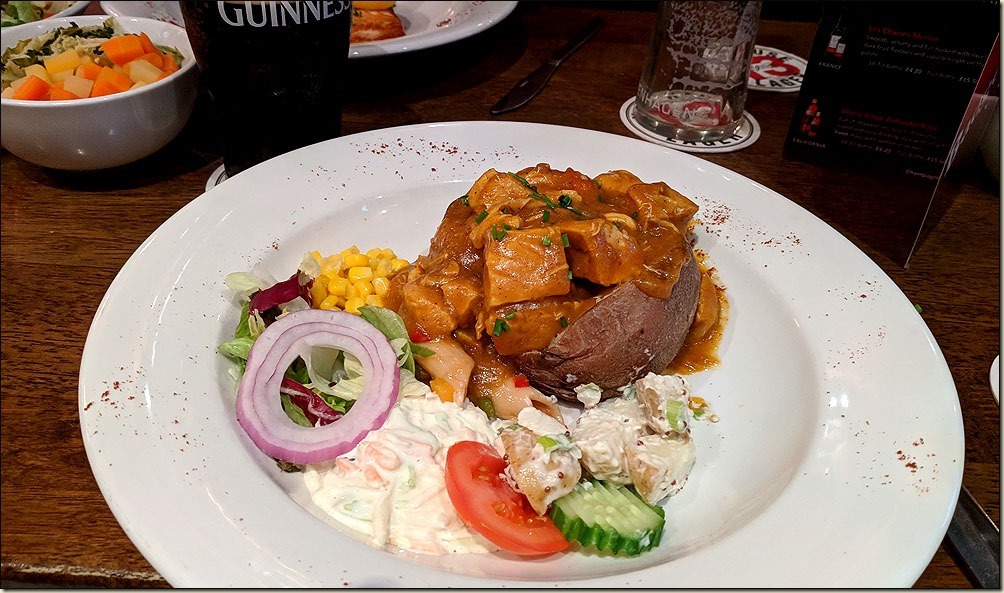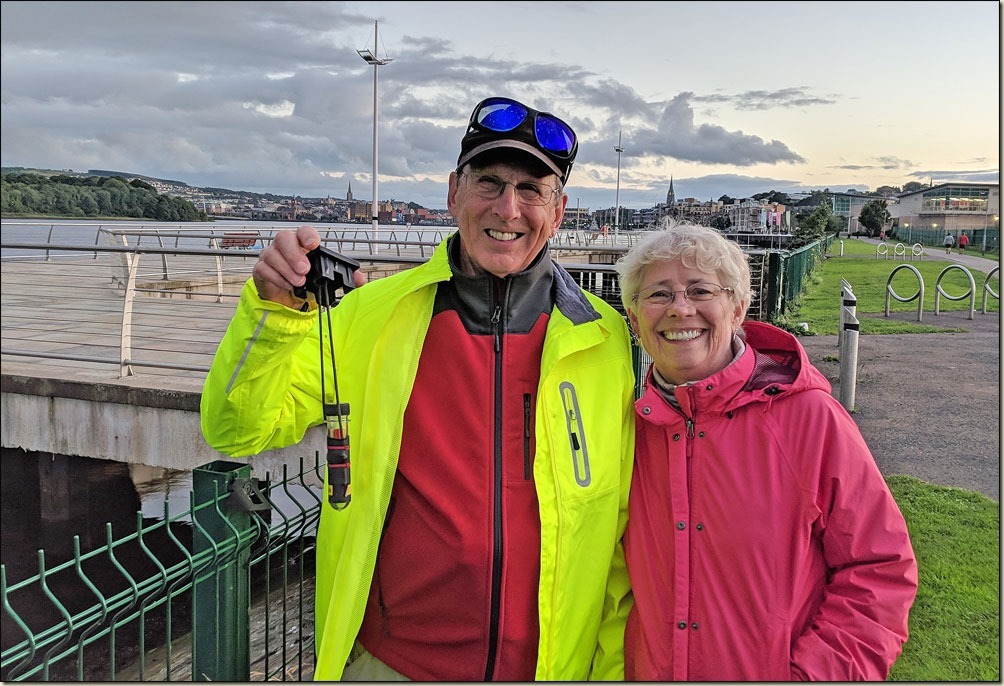Judy and Denise coordinate their gps units, with our human gps Tony who seems to know every road in Ireland! . . .
Tony dropped me in LetterKenny today, the location of the satellite hospital clinic, where I had appointment with the ophthalmology department. The doctor gave my left eye a ’clean bill of health’ so I am back on the bike tomorrow.
I took a bus up to Derry transit hub,which was right across from the Peace bridge . . . and there were Tom, Monica, Bob and Mavis who had just rolled into town.
The Peace Bridge we would find out is a symbol of friendship between LondonDerry and Derry, the Protestant and the Catholic sides of the city. Symbolizes two hands shaking in friendship . . .
. . . I walked along the riverwalk from the bus station to our hotel, The DaVinci. . .
. . . where along the way there was interesting art made of trash washed up on shore.
. . . also along the way was this dramatic sculpture of two grandparents saying goodbye to their children and grandchildren . . . must have had some to do with the emigration . . . no signs to explain it!!
Not sure what this was all about and the staff in the Da Vinci Hotel didn’t seem know either . . . although as we found out, it is always time for a Guinness!!!!
Nice digs at the DaVinci, where we would stay for two nights, as we make our last ride of the trip to Malinhead . . . no packing tomorrow . . .YIPPEE!!!!
Tony had arrange a walking tour for us around he old walled city. Great perspectives on the life and time of the city of Derry and it’s Protestant and Catholic residents. We toured the city from the elevated old wall led by Charlene, who walked backwards most of the time while talking to us!!!
The river physically separates Londonderry, mostly Protestant, from Derry, mostly Catholic. A period know as the ‘Troubles’ prevailed from the early 1970’s until the the early 1990’s with fighting between the Protestant and Catholic populations. One of the Troubles’ most notorious events, ‘Bloody Sunday’, occurred in Derry in 1972. On 30 January, 26 civil rights protesters were shot by members of the 1st Battalion of the British Parachute Regiment. Thirteen died immediately.
Throughout the 1990s, tensions cooled and violence traveled mainly to Belfast, Armagh and East Tyrone even though street riots and sectarian violence were still common. Irish journalist Ed Maloney claims in “The Secret History of the IRA” that republican leaders there negotiated a de facto ceasefire in the city as early as 1991.
The photo above shows a settlement know as the Fountains, comprised of about 3,000 Protestants, living in an area on the Derry side of the river. They remain fiercely loyal to England, fly the Union Jack Flag and have painted their curbs and other infrastructure with the colors of the flag.
A wide view of the area know as the Bogside, where much of the violence took place . . .
There is a high fence separating the Fountain’s area from the rest of Derry. A resolution calls for the fence to be finally taken down in 2020.
After a very informative tour it was time for a little dinner and I headed to Badger’s and convinced several others to join me. Although not the oldest pub in Derry, dating back to the 1600’s, Charlene said it had the best pub grub in Derry . . .
. . . so I followed through on her suggestion of chicken curry served in a baked potato . . .YUM . . . and of course, all washed down with a Guinness!!
We had a nice walk back to our hotel along the water front. Art and Sue are BIG geo caching fans, having located over 1,500 sites including this one located right on the waterfront in a plastic post head cap. Art is holding the plastic cap head that has the ‘cache’ attached to it with a string. Inside the cache you add your name, date and any comments you may have . . . FUN!!!!
Tomorrow is our last day of riding as we head for Malinhead . . .

